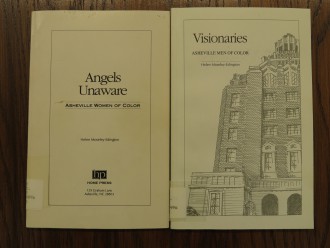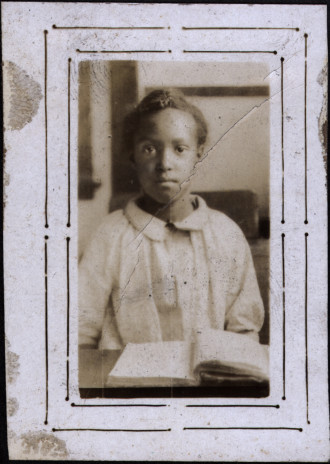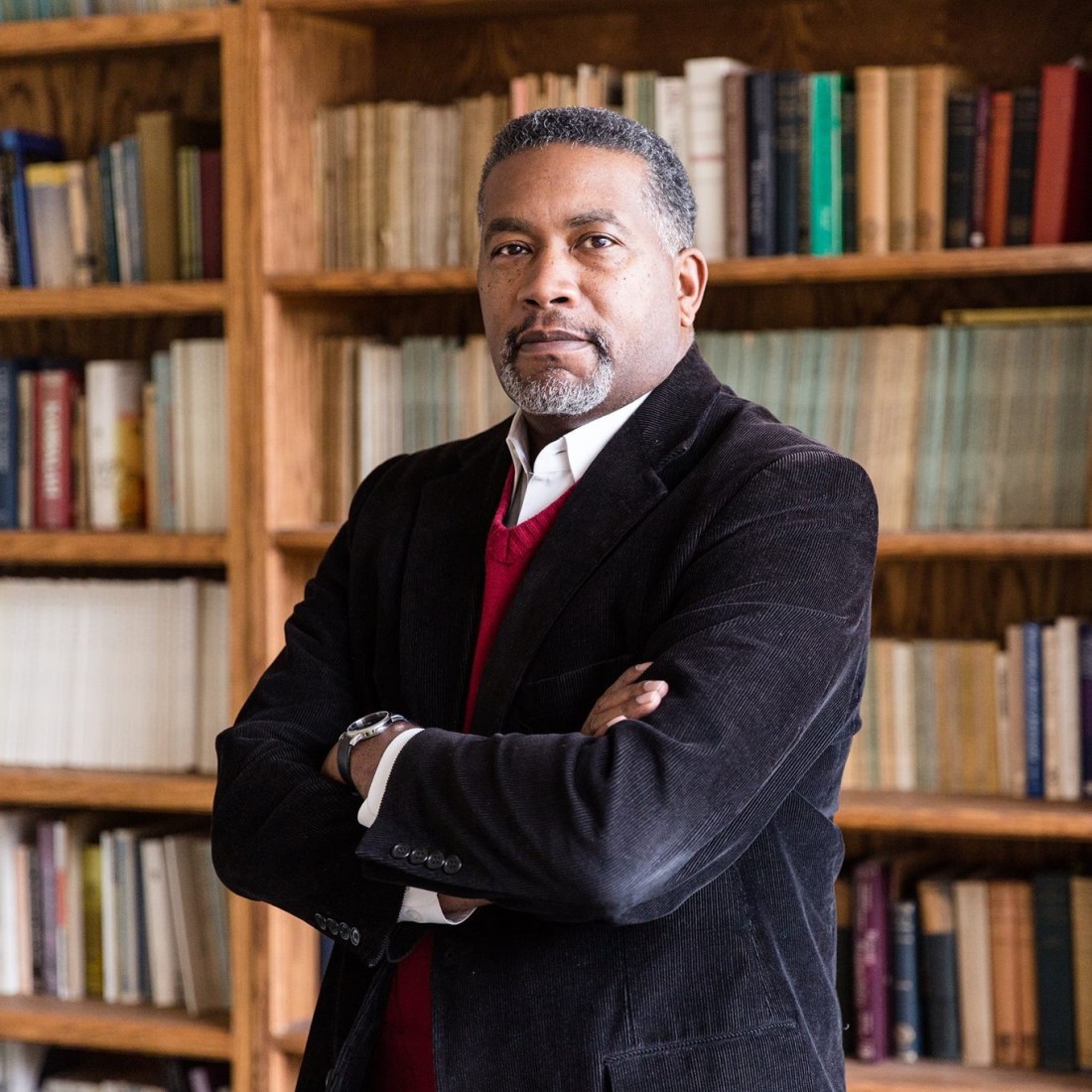The Asheville literary scene is spoken of with a kind of hallowed wonder. Native son Thomas Wolfe, short story writer O. Henry, and biographer and poet Carl Sandburg are quickly mentioned. But dig a little deeper, and one thing quickly becomes apparent: The list of luminaries is predominantly male and all white.
So where were the writers of color when F. Scott Fitzgerald was holed up with a borrowed typewriter in the Grove Park Inn? Or when Robert Creeley, Fielding Dawson, Jonathan Williams and others joined the Black Mountain School of poets launched by writer and educator Charles Olson?
A search of local library shelves and history organizations gives the impression that Western North Carolina only birthed white writers. But anyone called to put pen to paper (or finger to keyboard) knows that the artistic impulse isn’t racially motivated. Creative expression crosses all boundaries of ethnicity, gender, class and educational background. Access to platform, publication, distribution and recognition: That’s a different story.
The master narrative
“My uncle was a poet, but he died before his work was published,” says local novelist, poet and playwright Monica McDaniel. “A lot of people of color are writers. A lot of people have contacted me [saying] ‘I’ve written a book. How do I publish it?’ … Getting the knowledge out there, doing the research, putting your words into action … it’s all about self-educating yourself into doing what you want to do.” McDaniel, like a number of other local nonwhite writers, has found a path to success by self-publishing and rallying the support of her community rather than chasing dreams of a contract with “Big 5” trade book publishers (Hachette Book Group, HarperCollins, Macmillan Publishers, Penguin Random House and Simon and Schuster).
The fact that mainstream publishing is nearly a monopoly is a hurdle for most contemporary writers. But, business aside for a moment, the history of publishing is also the history of the dominant story and whose voices are amplified. “In a lot of places in the United States, you can still get a degree in English literature and not have to study any people of color,” says poet, author and educator Frank X Walker. “It’s part of the whole master narrative that displays the idea of a hierarchy in our society, that suggests whose work in this culture is more valuable. And it’s not women or people of color.”

A Danville, Ky., native, Walker coined the term “Affrilachia” in reference to the 13-state Appalachian Mountains region that embraces “a multicultural influence, a spectrum of people who consider Appalachia home and/or identify strongly with the trials and triumphs of being of this region,” according to The Affrilachian Poets website.
Walker remembers, as a teenager, asking at his local library why there weren’t more books by people of color. The librarian replied, “Why don’t you write one.” And he did, but the response was unfair. The African-American section in that library was two rows of books on one shelf. “In hindsight, the people making those selections and buying the books hadn’t had to learn anything about other people’s cultures,” says Walker. “They didn’t know who the great writers were in other people’s cultures; they’d never had to know.”
It’s an oversight that’s alarmingly common. Most white Ashevilleans — even those in literary circles — when asked to name a local author of color come up blank. And a search of local libraries for a book by such an author is not particularly fruitful.
Book learning
But that doesn’t mean those books don’t exist. Two worth picking up — that do happen to be shelved in Pack Memorial Library — are Angels Unaware: Asheville Women of Color and Visionaries: Asheville Men of Color, published in 1996 and 2000, respectively, by the late Helen Moseley-Edington. The author’s husband, Arthur Edington — for whom the Arthur R. Edington Education & Career Center is named — was a community leader and educator, serving as a principal in the Asheville City Schools system for 28 years.
While Darin Waters, a professor of history at UNC Asheville, can’t recall a literary tradition in the black community when he was growing up in Asheville, “My aunt, Shirley Waters … wrote two prominent plays that were well-attended here,” he says. “I don’t know that she would see herself as [a writer].”
“If you’re looking, philosophically, at the African-American community here, there’s a level of disconnectedness with the larger community,” Waters says. “That’s why you end up getting the question, constantly, ‘Where are the African-Americans here?’ Especially those who are native — you don’t see them in the downtown area that much.”
“It wasn’t always that way, though,” he adds. “Urban renewal had a major impact on that, and, before urban renewal, integration did. Integration ended up leading to the demise of Stephens-Lee High School.” When students from that all-black high school transferred into the formerly white school, African-American teachers (many of whom had advanced degrees, due to a partnership between Stephens-Lee and Columbia University) lost their jobs, dramatically changing the educational experience for students of color. Waters surmises that Asheville’s story might have been a much different one had the city been home to a historically black college or university.
“That changes the dynamic … because those [schools] maintained the historical [legacy] of the African-American community,” he says. “I think it makes a big difference in other communities, if you go east of here — Winston-Salem, Greensboro, Durham and Raleigh.”
Written legacy

Though Western North Carolina isn’t home to an HBCU, Black Mountain College did take the issue of desegregation seriously. “The college community, all white since its 1933 beginning, was not sure it was ready to take on this new risk,” wrote Alma Stone Williams who, in 1944, was the first African-American student to attend the institution. “The Journal of Blacks in Higher Education has recognized her as being the first known black student to integrate a white college in the South,” notes Williams’ obituary in the Times & Democrat.
Although Williams passed away in 2008, she left a legacy: She was not only a pioneer of racial integration but a scholar of English and music. She enrolled at Spelman College at age 15, studied at Juilliard School of Music and completed a second master’s degree at the University of Maryland, where “her master’s thesis on Brahms was so strong that her thesis adviser pronounced it as the ‘best Ph.D. thesis’ he had ever read,” according to Williams’ obituary. Her writing about her time in North Carolina, Opening Doors at Black Mountain College, is included in the anthology Remembering Black Mountain College.
Luther Porter Jackson Jr., the Chicago-born son of civil rights activists, came to WNC in 1947 to study at Black Mountain College before going on to graduate from the Columbia School of Journalism in 1951. According to his 2008 obituary in The Journal News, “He was one of the first African-American journalists at the Newark Evening News and later at the Washington Post.” He later returned to Columbia, his alma mater, “where he served as professor, mentor, confidant and friend to hundreds of young journalists until his retirement in 1992. He was the school’s first African-American professor.”
Dig deeper
If those names and contributions can be unearthed from the vaults, imagine what others lie in wait. It’s worth digging, and not just for readers of color who deserve to see their communities and concerns reflected in literature. “Reading about people who don’t look like you makes you more empathetic,” Walker says to white readers.
So, where do we start searching for those voices that have too long been silenced? “You have to look in the archives at HBCUs — particularly Howard [University] and Schomburg [Center for Research in Black Culture] — and the Library of Congress,” suggests Walker. Because “the major institutions in the region wouldn’t have the work [of lesser-known writers of color]. They wouldn’t have been interested, even if it had existed.”
So is the awareness of that history, and the continual effort needed to push nonwhite voices to the forefront, discouraging? “I’m a realist about what time it is in America,” Walker says. “As an agitator, as somebody who constantly reminds people to maybe rethink their definition of [Appalachia], that’s what a lot of my work is about.”
Take Kentucky-born author and journalist Alice Allison Dunnigan, for example. A contemporary of Harlem Renaissance writers, Dunnigan was the first African-American female White House correspondent. Her autobiography, A Black Woman’s Experience: From Schoolhouse to White House, was published in 1974. “If there was one in Kentucky, there were five in North Carolina,” Walker says with a laugh.
The Affrilachian artist is sure those writers will be discovered as interest in diverse voices grows. “Some lucky grad student will stumble on the right boxes and publish eight books from it,” Walker says.
Read Part 2 of this series here.



Before you comment
The comments section is here to provide a platform for civil dialogue on the issues we face together as a local community. Xpress is committed to offering this platform for all voices, but when the tone of the discussion gets nasty or strays off topic, we believe many people choose not to participate. Xpress editors are determined to moderate comments to ensure a constructive interchange is maintained. All comments judged not to be in keeping with the spirit of civil discourse will be removed and repeat violators will be banned. See here for our terms of service. Thank you for being part of this effort to promote respectful discussion.